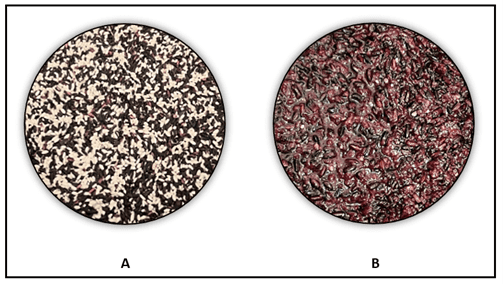Filipino researchers have discovered a way to optimize the traditional process of making Philippine rice wine, or tapuy, potentially transforming it into a superfood rich in anti-aging compounds and antioxidants.
Tapuy begins as a mixture of black and white glutinous rice, which is fermented with a starter culture known locally as “bubod.” After about a month, the solid remnants from the fermentation process, called “lees,” are typically filtered out and discarded. These byproducts are usually made up of rice residues, yeast, and other microbial remnants.

Edward Kevin B. Bragais from Ateneo de Manila University and Paul Mark B. Medina from the University of the Philippines examined the impact of different starter cultures—specific sets of microorganisms—on the lees, which are usually considered waste. Their research revealed that optimizing the fermentation process with a carefully selected microbial culture could turn tapuy lees into a valuable source of natural compounds with potential health benefits.
The study found that tapuy lees, when fermented with an improved starter culture, contained high levels of polyphenols, which are compounds known to combat oxidative stress, inflammation, and cell damage. More significantly, animal tests revealed that extracts from these lees showed remarkable antioxidant activity, enhancing lifespan, mobility, and reproductive health. The extracts also boosted levels of superoxide dismutase, an enzyme that helps protect cells from age-related deterioration.
These promising results suggest that tapuy lees could be repurposed as a health food to combat aging and diseases linked to oxidative stress. However, the researchers emphasized that these findings are preliminary and based on animal studies. They highlighted the need for clinical trials to determine whether these benefits extend to humans. If future studies confirm these effects, this often-overlooked byproduct of rice wine production could become a powerful tool in promoting longevity and improving public health.














